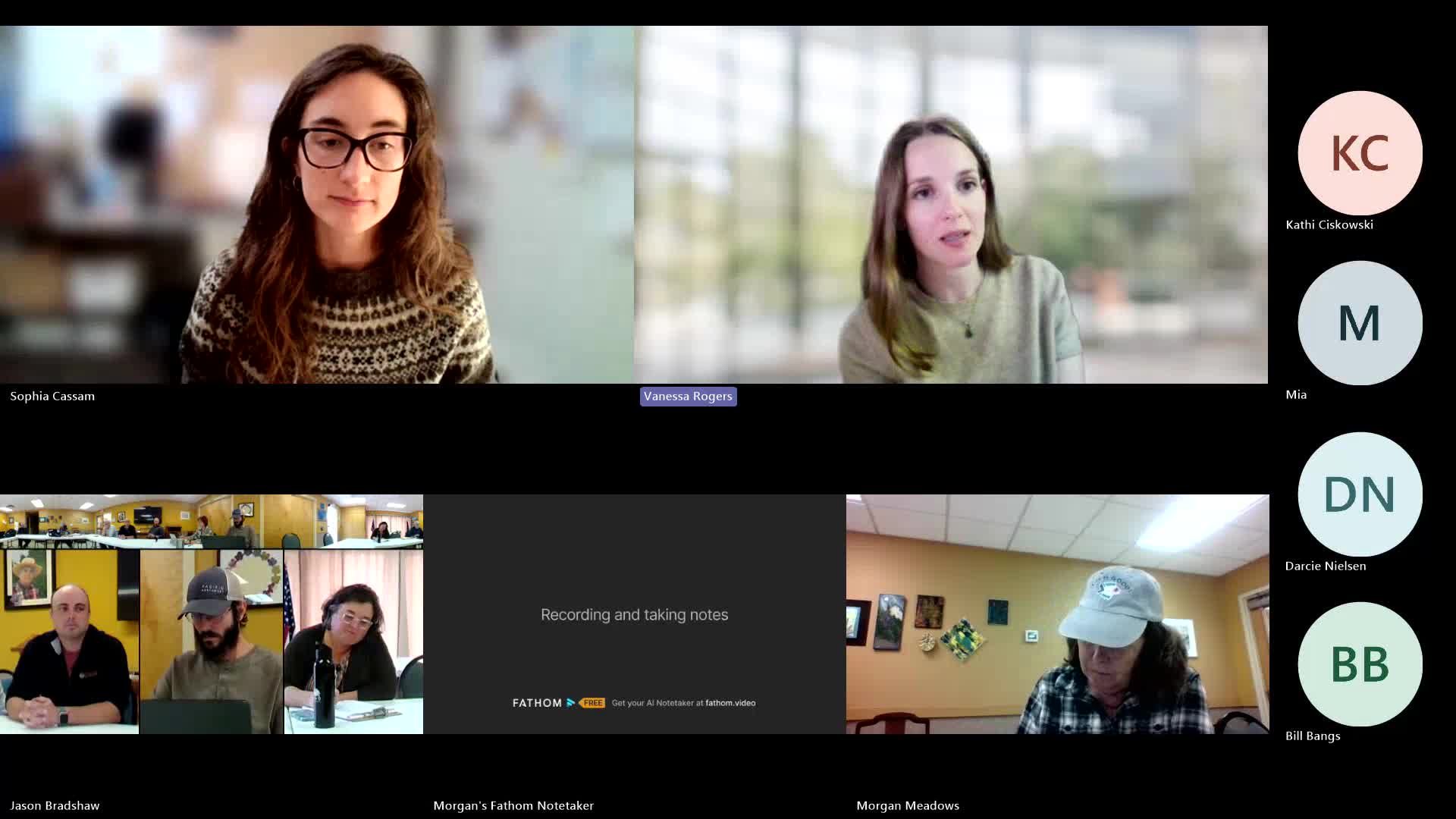OPALCO preps Eastsound substation rebuild and 4 MWh battery; work slated for 2026–2027
October 02, 2025 | San Juan County, Washington
This article was created by AI summarizing key points discussed. AI makes mistakes, so for full details and context, please refer to the video of the full meeting. Please report any errors so we can fix them. Report an error »

Representatives from OPALCO and consultant ESA presented a pre-application for an Eastsound substation rebuild and associated battery storage during the Oct. 2 EPRC meeting. Vanessa Rogers, ESA, opened the presentation and said the project is in a pre-permit stage: “We are not yet at the stage where we're going to submit applications.”
Robert (OPALCO) said the work would take place on the existing substation lot, expanding the fenced footprint to create equipment and vehicle access and to bring the station to current standards. He described the project as a substation rebuild combined with battery installation and said the battery for this site was sized at roughly 4 megawatt‑hours (MWh) though OPALCO acknowledged that space and grant funding constrain final sizing.
Project timing is phased: OPALCO expects battery work to begin sooner (targeted for 2026) and major substation reconstruction (including large transformers ordered earlier) to be carried out in 2027 because of long lead times for equipment. Robert said outages and construction windows will likely be scheduled in late spring/May to avoid winter operational constraints.
Vanessa and OPALCO staff reported that cultural resources surveys were completed with no concerns raised and that wetland and stream delineations found resources on the parcel that will require coordination with Washington State Department of Ecology and the U.S. Army Corps of Engineers; local county permits will also be needed. The project is a competitive grant through the Washington Department of Commerce and is expected to be 50% funded by that program.
Speakers emphasized potential resilience benefits: batteries could support selected critical loads (schools, wastewater facilities, similar assets) during outages and can also be used for grid efficiency (peak shaving). OPALCO staff cautioned that batteries are not a cure-all and that load analysis would determine which critical assets could be supported.
Ending: Early outreach continues; county staff and OPALCO will coordinate permitting and outreach, and the EPRC discussed using a planned outage period as an opportunity to rehearse community emergency responses.
Robert (OPALCO) said the work would take place on the existing substation lot, expanding the fenced footprint to create equipment and vehicle access and to bring the station to current standards. He described the project as a substation rebuild combined with battery installation and said the battery for this site was sized at roughly 4 megawatt‑hours (MWh) though OPALCO acknowledged that space and grant funding constrain final sizing.
Project timing is phased: OPALCO expects battery work to begin sooner (targeted for 2026) and major substation reconstruction (including large transformers ordered earlier) to be carried out in 2027 because of long lead times for equipment. Robert said outages and construction windows will likely be scheduled in late spring/May to avoid winter operational constraints.
Vanessa and OPALCO staff reported that cultural resources surveys were completed with no concerns raised and that wetland and stream delineations found resources on the parcel that will require coordination with Washington State Department of Ecology and the U.S. Army Corps of Engineers; local county permits will also be needed. The project is a competitive grant through the Washington Department of Commerce and is expected to be 50% funded by that program.
Speakers emphasized potential resilience benefits: batteries could support selected critical loads (schools, wastewater facilities, similar assets) during outages and can also be used for grid efficiency (peak shaving). OPALCO staff cautioned that batteries are not a cure-all and that load analysis would determine which critical assets could be supported.
Ending: Early outreach continues; county staff and OPALCO will coordinate permitting and outreach, and the EPRC discussed using a planned outage period as an opportunity to rehearse community emergency responses.
View full meeting
This article is based on a recent meeting—watch the full video and explore the complete transcript for deeper insights into the discussion.
View full meeting
